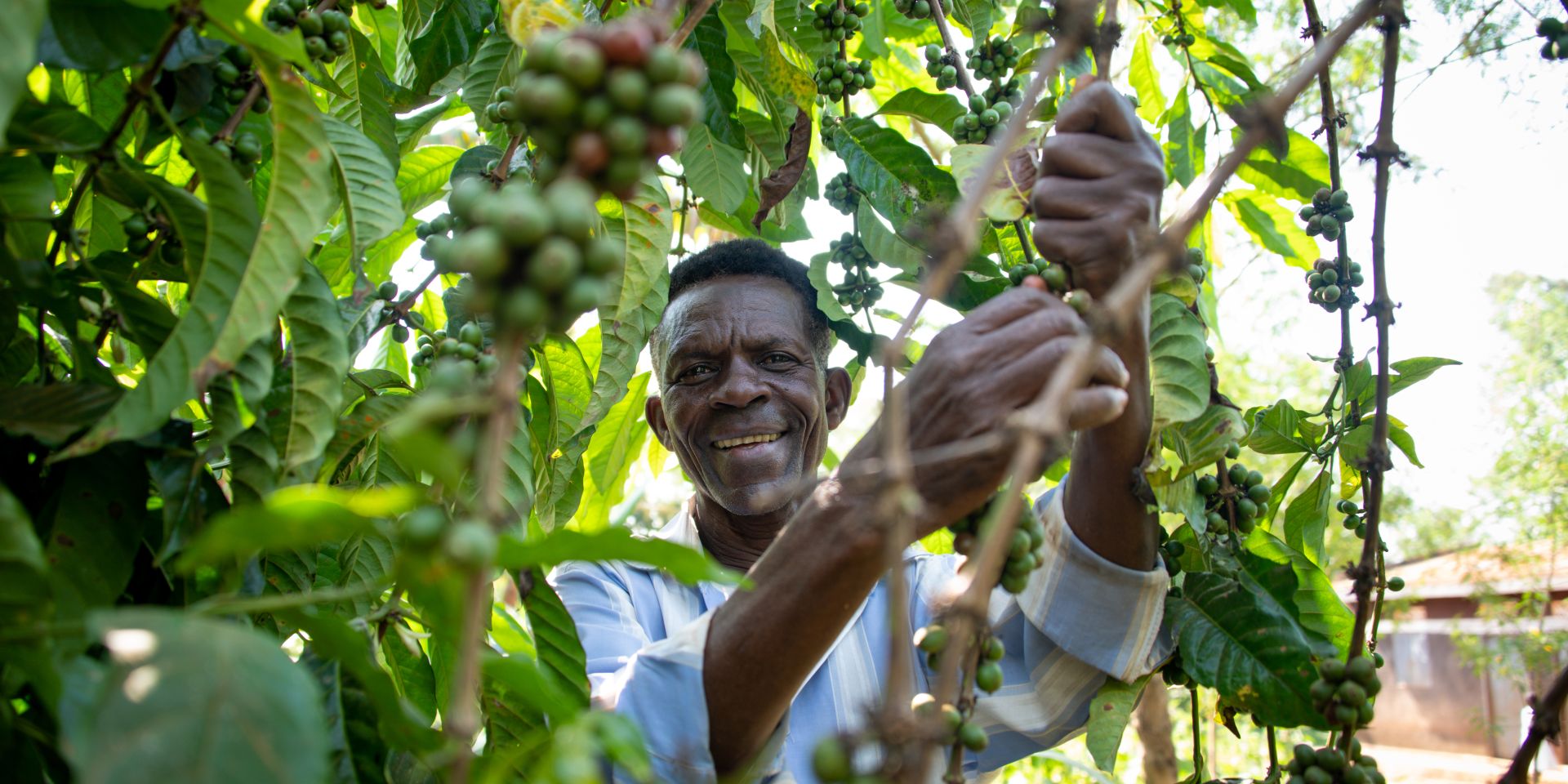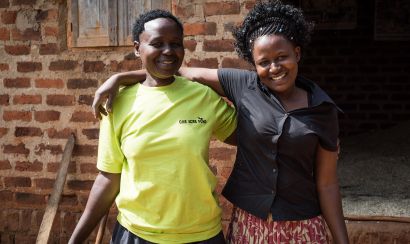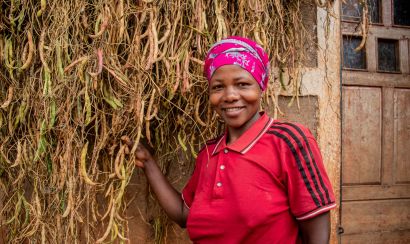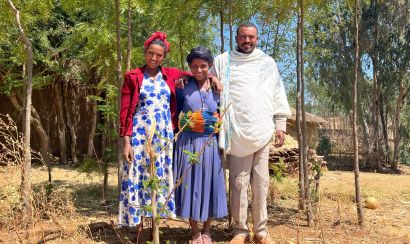Improving farmers’ livelihoods through income diversification in Uganda
Uganda’s economy largely depends on agriculture, with the sector employing a significant portion of the country’s population. However, earning a decent income from staple crops like maize – which most farmers rely on for a living – can be challenging, often due to production and market saturation. Given these challenges, One Acre Fund has recently adjusted our support for Ugandan smallholder farmers to better suit their needs.
Since 2021, we have been helping Ugandan farmers to diversify their income streams with cash crops like coffee, chia, and macadamia; these crops offer more value on a smaller farming budget, making them a viable alternative for farmers looking to improve their earnings. We have also introduced a robust tree planting program that offers supplemental ways for farmers to earn more while also building resilience to changing weather patterns.
We pivoted to a cash crop program
With our shift from supporting farmers primarily on subsistence crops, one of our primary focus areas has been promoting coffee cultivation among smallholder farmers. Under our coffee extension program, we train farmers with existing coffee bushes on best-practice cultivation methods to help them increase their yields. In addition to providing production-boosting training, we also connect farmers with coffee processors and markets to enable them to get better prices for their produce.
Our coffee program has experienced rapid growth since 2021, with the inclusion of input sales to enable farmers to access essential farming tools. Our efforts have resulted in a 250% increase in coffee supplied by smallholder farmers to UGACOF, a premier supplier of East African coffee operating in 32 countries. The coffee program has also significantly impacted farmer income, increasing average earnings per farmer by $70 a year. We are also currently in the process of researching coffee seedling production so we can supply high-quality coffee seedlings to farmers in the future.
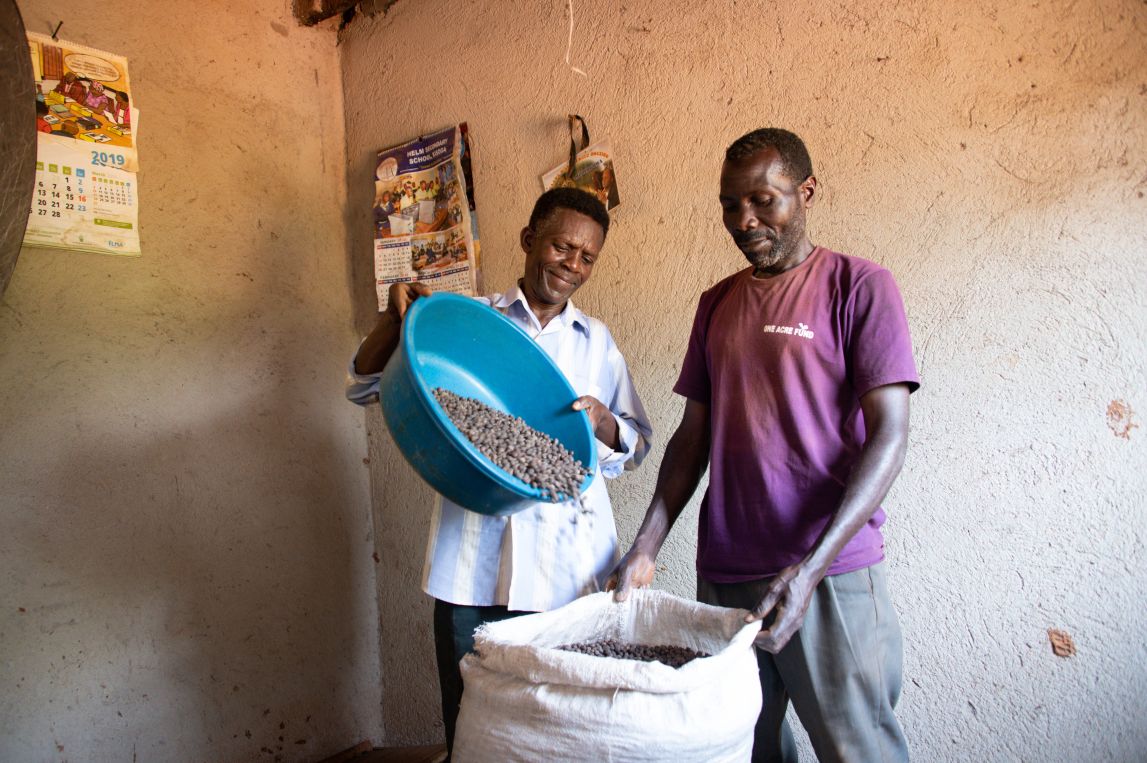
We started a market access program
We complement our efforts supporting farmers during the production process by also connecting them to competitive markets to increase their incomes.
In 2022, we conducted a coffee market scan that helped us identify potential partners we could work with during coffee harvest seasons, focusing on value addition. In line with this, we are seeking market access opportunities to connect farmers with buyers willing to pay premium prices for high-quality coffee. Additionally, we are weighing the potential of in-house processing options to further increase farmer profitability. We are also expanding our extension program to include larger coffee companies interested in sustainable sourcing and making a positive impact on the livelihoods of coffee producers.
We have also expanded our product portfolio to include chia and macadamia to further encourage farmers to diversify their income streams. In support of this initiative, we have partnered with a processor to buy back macadamia nuts at a premium when the trees start producing fruit (after approximately five years). We have also established a partnership with a processor located in Jinja to collaborate on chia production. Through this collaboration, farmers are presented with a guaranteed price at the outset of the season, providing them with a sense of assurance regarding their potential income.
Macadamia and chia have significant potential to impact incomes and livelihoods, and we aim to encourage more farmers to cultivate them by providing buyback guarantees.
We partnered to drive climate change adaptation through trees
Our revamped Uganda program also helps farmers adapt to climate change through tree planting which helps farmers adapt to climate change by improving soil health, providing shade and windbreaks, and diversifying income streams. In an effort to encourage on-farm agroforestry, we distributed 390,000 tree seedlings to 13,000 farmers in 2022, and aim to distribute 650,000 in 2023.
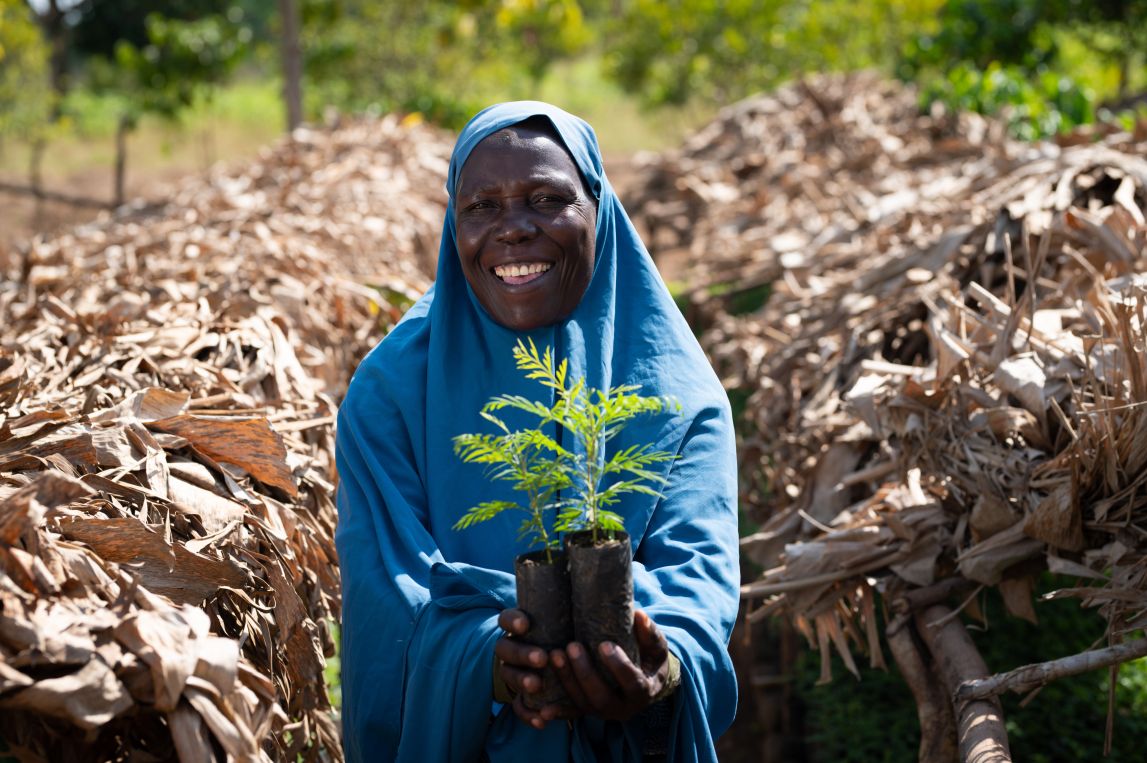
To cover as much ground as possible, we have established strong partnerships with organizations like the National Forestry Association (NFA) to obtain additional seedlings and embed our work into government tree programs and initiatives.
This program also promotes bamboo farming in collaboration with government agencies and farmers. Although bamboo is not a food crop, it offers several benefits to food security when grown alongside food crops or as part of a diversified farming system. By farming bamboo, farmers can diversify their income and build resilience to the effects of climate change, such as drought, flooding, and extreme weather events. Bamboo offers a highly renewable source of biomass energy, which can reduce deforestation and fossil fuel use. It can be used for cooking, electricity, and heating, and grows faster than most trees, taking pressure off other forest resources.
Secure smallholder prosperity
As an economic group that plays a crucial role in Uganda’s economy, smallholder prosperity is essential for the country's overall food security and development. We are excited about the positive impact that our programs are creating for farmers and remain committed to finding innovative ways to support their future success.
